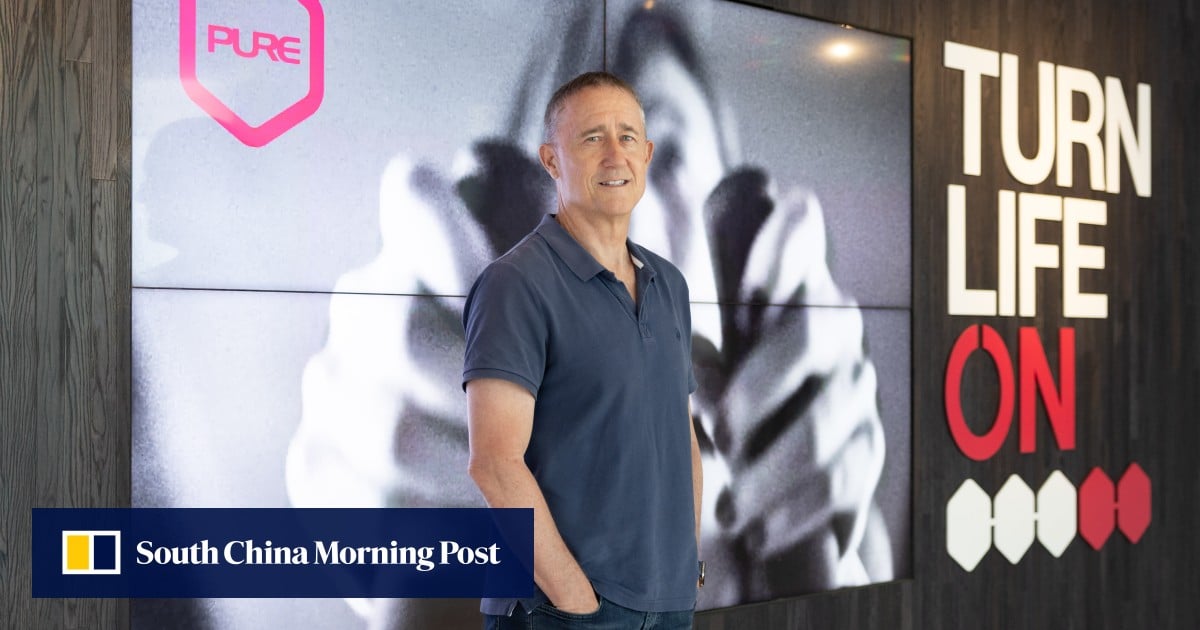Fashion
Marco Falcioni’s Genius: Boss Spring 2025 Dominates Milan Fashion Week

MILAN, ITALY – SEPTEMBER 18: Marco Falcioni walks the runway at the Boss fashion show during the … [+]
Few leaders can match the remarkable blend of creative direction, business acumen, and visionary thinking that Marco Falcioni embodies. As the Creative Director of Hugo Boss, Falcioni has emerged as a prototype of the future leader, seamlessly balancing the artistic and the practical to drive both the Boss and Hugo brand’s exponential growth.
The results speak for themselves. In a universe where fashion brands are going bust left, right and center, 2023 marked a record year for Hugo Boss, with sales increasing by a staggering 18% under Falcioni’s creative direction.
So, what can we learn from this leader?
Firstly, Marco Falcioni’s genius lies in his ability to strike a harmonious balance between creativity and business objectives. As I’ve highlighted in my book, The Kim Kardashian Principle, the most successful leaders are those who are fluent in both the language of business and creativity. Falcioni’s dual-minded approach, blending left-brain analysis with right-brain innovation, has been the driving force behind the brand’s impressive growth.
LONDON, ENGLAND – FEBRUARY 17: BOSS Creative Director Marco Falcioni and Janet Jackson attend a … [+]
Interestingly, while creativity is undoubtedly the most sought-after skill for business leaders, the reality is starkly different. A PwC study found that all 77% of CEOs struggled to find the creativity and innovation skills they desperately needed. And when LinkedIn surveyed corporate leaders, it went as far as to dub creativity “the most important skill in the world.”
Yet the next-level challenge lies in translating that creativity into tangible business results. That’s where bi-lingual leaders like Falcioni shine, seamlessly bridging the gap between artistic vision and commercial success.
Secondly, Falcioni’s clear commitment to collaboration sets him apart. Whether working with renowned figures like Naomi Campbell or David Beckham, I’ve noticed how Falcioni always maintains a subtle presence. And while many creative directors are increasingly seeking the spotlight, Falcioni seems to prefer to stay relatively low-key, allowing the focus to remain on the brand and its vision. His approach reminds me of the concept of “leading from behind,” a concept coined at my alma mater, the Harvard Business School, where the leader empowers and elevates those around them, much like a shepherd tending to their flock.
Hugo Boss Ceo Daniel Grieder, British former football player David Beckham (C) and British-US … [+]
Thirdly, as Hugo Boss split into two different brands, HUGO and BOSS, Falcioni understood the brief and the pulse of the different target audiences and embodying an entrepreneurial spirit, Falcioni positioned both Hugo and Boss as a lifestyle choice that transcends the boundaries of fashion. There is no doubt that the “Be Your Own Boss” brand positioning resonates strongly with the modern consumer, who is increasingly seeking greater control and autonomy in their lives. A recent study by AXA UK showed that six in 10 young adults want to be their own boss by the age of 30.
LONDON, ENGLAND – NOVEMBER 15: Marco Falcioni attends the GQ Men of the Year Awards in association … [+]
And in a sense, the “Be Your Own Boss” ethos is a direct manifestation of Falcioni’s own persona becoming the ultimate brand ambassador. This integration of the individual and the brand promise is what gives Boss a further edge – when Falcioni makes his special guest appearances – its authentic because it allows Boss to own its ethos and becomes a distinctive voice and appeal in the market.
MILAN, ITALY – SEPTEMBER 18: Dixie D’Amelio arrives at the Boss fashion show during the Milan … [+]
Falcioni’s leadership lessons don’t stop there. In a world where change is the only constant, he’s honed the rare ability to not just navigate turbulence, but to harness its disruptive potential.
LONDON, ENGLAND – NOVEMBER 16: (L to R) Micheal Ward, Stella Maxwell, Candice Swanepoel, Marco … [+]
Research reveals that a mere 27% of leaders feel truly prepared to guide their people through the stormy seas of transformation. And according to studies by Willis Towers Watson, a mere 22% of leaders believe the training they’ve received to manage change has been truly effective. Yet Falcioni stands apart, embracing emerging technologies and platforms with a visionary lens. His sights are firmly set on the future, as evidenced by Boss’s successful foray into the Metaverse during the recent Metaverse Fashion Week. This “fourth dimension” he’s crafted for the brand is a testament to his unwavering commitment to anticipating and adapting to the ever-evolving landscape of the industry.
Influencer and TikToker Khaby Lame walks the runway during the Boss collection show at Milan’s … [+]
In a world where cognitive fixedness can hinder business growth, I believe that Marco Falcioni’s ability to be open-minded, blend creativity, technology, and business acumen teaches us all new lessons in leadership. He is positioning Hugo and Boss as brands that are not just relevant in the present but are shaping the future. And I have no doubt that this visionary approach is what will continue to drive the brand’s success and cement Falcioni’s reputation as a true industry trailblazer.
Want to be your own boss? After witnessing Falcioni’s genius, I think we all know how.
Named Esquire’s Influencer Of The Year, Jeetendr Sehdev is a media personality, international speaker and the author of the New York Times bestselling sensation, The Kim Kardashian Principle: Why Shameless Sells (and How to Do It Right.)






.jpg)


